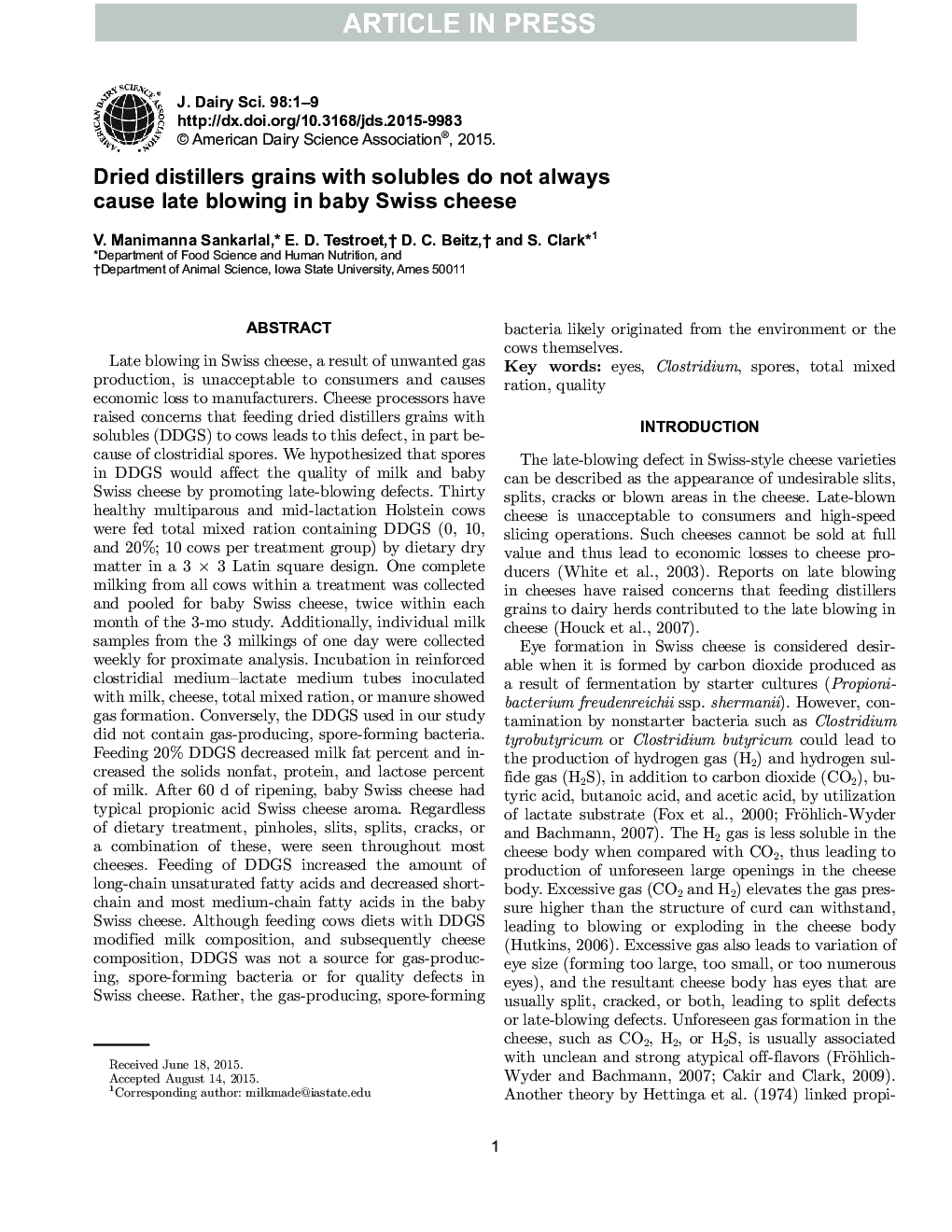| Article ID | Journal | Published Year | Pages | File Type |
|---|---|---|---|---|
| 10973391 | Journal of Dairy Science | 2015 | 9 Pages |
Abstract
Late blowing in Swiss cheese, a result of unwanted gas production, is unacceptable to consumers and causes economic loss to manufacturers. Cheese processors have raised concerns that feeding dried distillers grains with solubles (DDGS) to cows leads to this defect, in part because of clostridial spores. We hypothesized that spores in DDGS would affect the quality of milk and baby Swiss cheese by promoting late-blowing defects. Thirty healthy multiparous and mid-lactation Holstein cows were fed total mixed ration containing DDGS (0, 10, and 20%; 10 cows per treatment group) by dietary dry matter in a 3Â ÃÂ 3 Latin square design. One complete milking from all cows within a treatment was collected and pooled for baby Swiss cheese, twice within each month of the 3-mo study. Additionally, individual milk samples from the 3 milkings of one day were collected weekly for proximate analysis. Incubation in reinforced clostridial medium-lactate medium tubes inoculated with milk, cheese, total mixed ration, or manure showed gas formation. Conversely, the DDGS used in our study did not contain gas-producing, spore-forming bacteria. Feeding 20% DDGS decreased milk fat percent and increased the solids nonfat, protein, and lactose percent of milk. After 60 d of ripening, baby Swiss cheese had typical propionic acid Swiss cheese aroma. Regardless of dietary treatment, pinholes, slits, splits, cracks, or a combination of these, were seen throughout most cheeses. Feeding of DDGS increased the amount of long-chain unsaturated fatty acids and decreased short-chain and most medium-chain fatty acids in the baby Swiss cheese. Although feeding cows diets with DDGS modified milk composition, and subsequently cheese composition, DDGS was not a source for gas-producing, spore-forming bacteria or for quality defects in Swiss cheese. Rather, the gas-producing, spore-forming bacteria likely originated from the environment or the cows themselves.
Related Topics
Life Sciences
Agricultural and Biological Sciences
Animal Science and Zoology
Authors
V.Manimanna Sankarlal, E.D. Testroet, D.C. Beitz, S. Clark,
